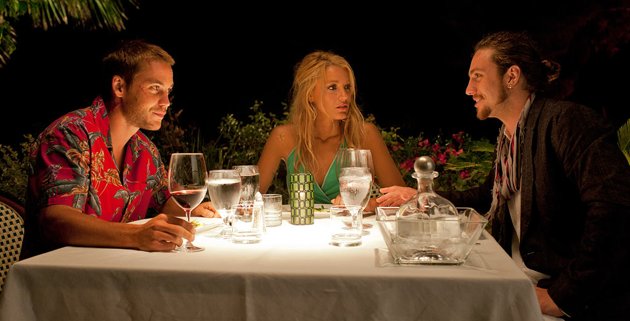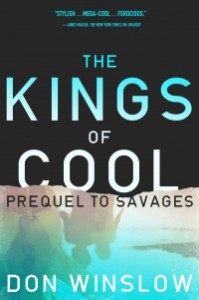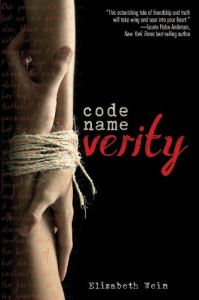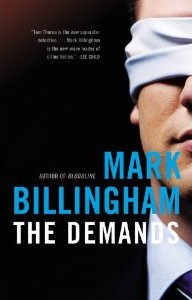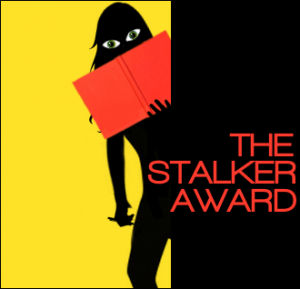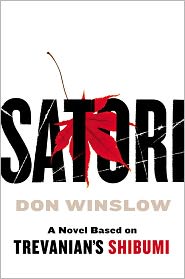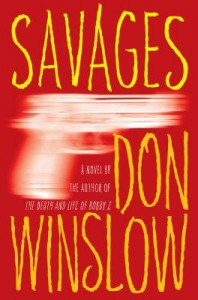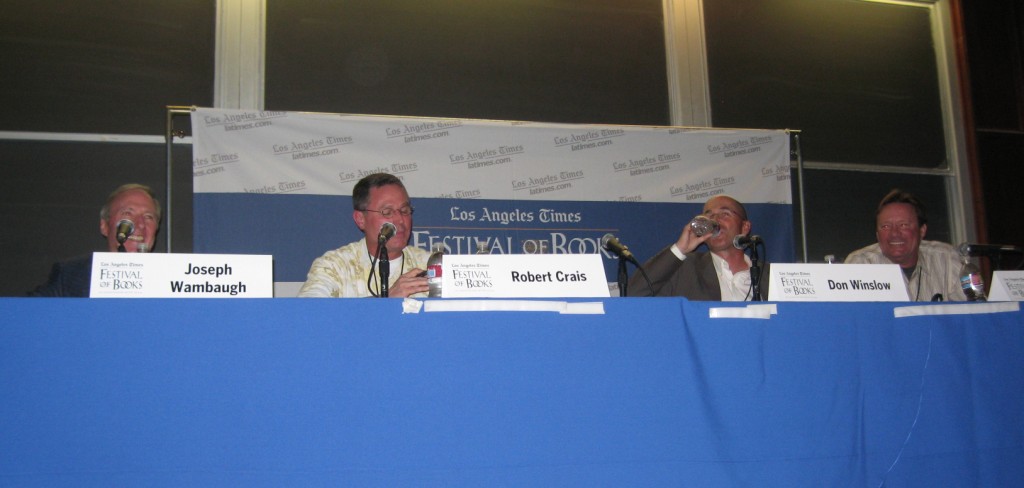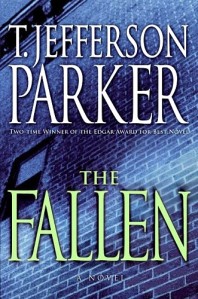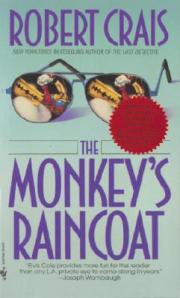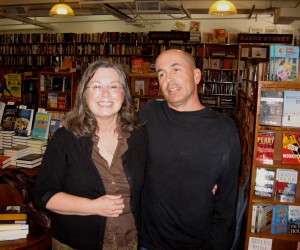This is part two of my report on the “Cops & Crooks in California” panel held this past Saturday, April 25, as part of the L.A. Times Festival of Books. (Click here for part one.) The participants were crime novelists T. Jefferson Parker (The Renegades), Don Winslow (The Dawn Patrol), Joseph Wambaugh (Hollywood Crows) with Robert Crais (The Watchman) as moderator.
Crais had asked the panelists why they write crime fiction. Parker launched into a story about a signing he did in Norwalk, CA, where a woman asked what his book was about.
“It’s about friendship, love and hate, crime and betrayal,” Parker responded. The woman asked, “What’d you want to write about that stuff for?” Parker said he found those subjects compelling. The woman then said she could afford only one hardcover book a month and had already bought it but wanted Parker to sign it. She proceeded to pull out a copy of a Robert James Waller bestseller, which Parker dutifully signed. “Somewhere out there, there’s a copy of Bridges of Madison County with my name on it!”
Wambaugh had his own funny anecdote about a signing he did at the East Ambassador Hotel in Chicago. A woman came looking for the writer Irving Stone and was disappointed to find Wambaugh there. “You’re not Irving Stone,” she said. “No, lady, I’m Truman Capote,” Wambaugh quipped. The woman looked him over and said, “But, Mr. Capote, on television you look so much more masculine!”
Crais chimed in with his story about a signing he did with four other writers. A man came sniffing around the table, looking over everybody’s books. “Me being me, I said, ‘Are you gonna buy something?’ ” Crais said. The man asked, “Whose book is the cheapest?”
Not to be outdone, Winslow shared details of one of his bizarre signing experiences. “The lady who owned the store had me come in and there was a flood that day…there were sandbags in front of the store. I had to take off my shoes and wade…nobody came. It was a two-hour signing. After an hour ten minutes into it, the lady said, ‘Just lock up for me.’ Irish-Catholic boy that I am, I sat there, robbed the till, then left.”
After the laughter died down, Crais asked, “So, you’ve been on tour, you’ve met the fans. Have you ever been frightened?”
Winslow went first with a story about a signing in Greenwich Village where a woman showed up dressed in full S & M garb. She wanted him to sign a book called Slave Girls of Rome [when Crais mentioned this title during introductions, Winslow said it was another Don Winslow, an 82-year-old man, who wrote it]. This woman approached the author, “her voice dropped an octave and she said, ‘I love your other stuff, too.’ Mine went up two or three octaves. ‘No, you don’t! No, you don’t!'” Winslow said.
“I think she came to one of my signings in D.C. She said, ‘You should read Don Winslow,'” Crais said. He then talked about a Philadelphia appearance where a woman came up to him with a toddler. “She plopped that boy on the table and said, ‘Here’s your daddy!'”
“What was your comeback, Bob?” Parker asked.
“I said, ‘Looks just like Jeff Parker!'” Crais answered.
At this point, Crais opened the floor to audience members and invited questions. The first person up asked whether or not the authors have any control over who reads their audio books.
Wambaugh said he had no control and the others agreed. “I’ve never listened to one of my books. I don’t know why. Can’t bring myself to read them, either,” Wambaugh said.
Crais said he finds it hard to listen to audio versions of his novels because he hears them in his voice so it’s jarring to hear them in someone else’s voice. “Most I can listen to is eight to ten minutes. I did do the abridged version of Hostage. That, I can listen to over and over.”
Next, someone asked whether the authors create outlines or just start writing and let the plot write itself (!).
“I do both,” Parker said. “I once started with a bar napkin with four character names circled on it. That was Little Saigon.” But he’s learned to outline because “I can’t hold a 500-page manuscript in my brain.”
“I’m an outliner,” Crais said. “I figure eighty percent of the stuff out beforehand. I’m a fan of notecards. I’m a very visual person and actually like to see the continuity of it. I actually believe that it helps me to balance and pace my books because if a lot of the scenes and stuff where nothing is really happening—if that’s all jammed to one side—I think, ‘Man, I’d better have something happening there’ so then I start moving cards around.”
“James Ellroy does 350-page outlines before he starts writing,” Wambaugh said.
A woman in the audience asked why in his books, Crais refers to the good guys by their last names but the bad guys by their first. She wondered if it was an intimacy issue.
“I never thought about it before. Now, I’ll obsess about it and never write again,” Crais said.
Another audience member asked how the writers felt about the Kindle.
“I’ve never seen one before,” Crais said, but added he’d be open to it if someone wants to send him one. Winslow said, “I don’t care, as long as people are reading.” He said he likes the tactile feel of books and how he can drop them in the tub and it’d be okay.
At this point, a woman behind me asked, “Can you explain what a Kindle is?”
Wambaugh threw up his hands and said, “I have no idea!” Another woman behind me helpfully held one up for all to see.
The last question was something about characters [how they’re created? Sorry, my handwriting was illegible here after an hour of scribbling].
“All writers are cannibals. You eat up your life,” Crais said. He explained that he infuses his characters with a lot of his worldview.
“I think characters are everything. If people don’t like them, they’re not going to care what happens to them,” Winslow said.
Parker said, “You pull from everything, little pastiches, combinations of everyone I’ve ever known. They represent something, an extreme of some kind, traits you recognize.”
“You guys have said it,” Wambaugh said. “I think I have one thing to offer. When you’re dealing with an audience like this that can be agenda-driven, ready to skewer you with political questions, give them a very brief two-word response to everything. Example: ‘Are you a Republican?’ Not yet!…’Are you Jewish?’ Not yet! ‘Are you gay?’ Same answer!”
On this note, the discussion ended, the authors hugged it out before fans swarmed them for photo ops.
I hope you’ve enjoyed reading about it!
Subscribe to Pop Culture Nerd by Email

From L: Winslow, Wambaugh, Parker, Crais

Crais with my friend Betsy
 The three leads do an adequate job—Lively is most effective in captivity when her face is scrubbed clean of makeup and she shows her vulnerable side—but they can’t hold a candle to the veteran supporting cast. Hayek is fierce as the cartel’s leader, and just as convincing as a mother desperately trying to connect with her daughter. Benicio Del Toro seems to have really enjoyed playing Elena’s enforcer, Lado, managing to get some laughs despite his character being terrifying (think Javier Bardem’s Anton Chiguhr in No Country for Old Men). As a dirty DEA agent, John Travolta sinks his teeth into his role and chews up the scenery, too.
The three leads do an adequate job—Lively is most effective in captivity when her face is scrubbed clean of makeup and she shows her vulnerable side—but they can’t hold a candle to the veteran supporting cast. Hayek is fierce as the cartel’s leader, and just as convincing as a mother desperately trying to connect with her daughter. Benicio Del Toro seems to have really enjoyed playing Elena’s enforcer, Lado, managing to get some laughs despite his character being terrifying (think Javier Bardem’s Anton Chiguhr in No Country for Old Men). As a dirty DEA agent, John Travolta sinks his teeth into his role and chews up the scenery, too.
